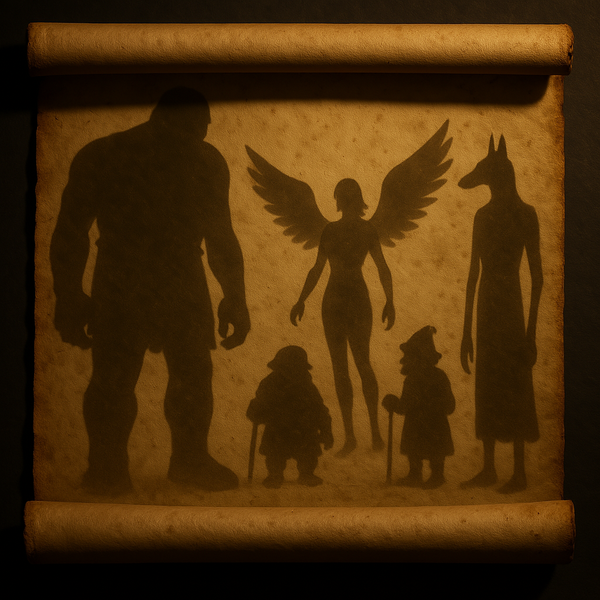Abaddon
Abaddon is a mysterious, distant, insatiable place of death, possibly distinct from Sheol. Abaddon is also an angel and king over chimeric creatures that plague humanity in the end times.

Who, or what, is Abaddon? Most who have heard of him will also recognize his Greek name Apollyon. We are told in Revelation that he is the angel who is king over the creatures of the bottomless pit. But what's the whole picture? What does the Old Testament say about this angel and how does that inform the writings of Revelation?
Old Testament
We first see Abaddon personified along with Sheol as naked without covering.
Job 26:6
Sheol is naked before God,
and Abaddon has no covering.
Later in Job 28, Abaddon is paralleled with Death and is likewise personified.
Job 28:21-22
It is hidden from the eyes of all living and concealed from the birds of the air.
Abaddon and Death say, ‘We have heard a rumor of it with our ears.’
Further on, Job refers to adulatory as a fire that consumes as far as Abaddon. This implies Abaddon is a far off place.
Job 31:12
For that would be a heinous crime; that would be an iniquity to be punished by the judges; for that would be a fire that consumes as far as Abaddon, and it would burn to the root all my increase.
Psalm 88 refers to Abaddon as a place and compares it to the "grave".
Psalm 88:11
Is your steadfast love declared in the grave, or your faithfulness in Abaddon?
Proverbs 15 refers to Abaddon along side Sheol as being laid open before God.
Proverbs 15:11
Sheol and Abaddon lie open before the LORD;
how much more the hearts of the children of man!
Proverbs 27 describes Abaddon as never satisfied.
Proverbs 27:20
Sheol and Abaddon are never satisfied, and never satisfied are the eyes of man.
The point of Job 26:6 and Proverbs 15:11 seems to be that Abaddon is a mystery only God understands.
So, in the Old Testament, Abaddon is a mysterious, distant, insatiable place of death, ostensibly distinct from Sheol.
Rabbinic Literature
According to the Oxford companion to the Bible, "Rabbinic literature later describes Abaddon as part of Gehenna," (Steven Friesen).
https://archive.org/details/isbn_9780195046458/page/2/mode/2up
The Bible never communicates that as being the case but the concept doesn't seem to contradict Scripture either.
New Testament
In the New Testament, however, we see a completely different view of the word Abaddon.
Revelation 9:11
They have as king over them the angel of the bottomless pit. His name in Hebrew is Abaddon, and in Greek he is called Apollyon.
The author of Revelation clearly states that Abaddon is the name of an angel who is the king of the creatures of the bottomless pit. So what's going on? The book of Revelation is building off of the Old Testament personifications of Abaddon and applying that concept to a single figure who is king over the creatures of the bottomless pit. This isn't unlike how the Greeks referred to Hades as both a god and a place.
Speculation
While this literary method is brilliant and powerful it does still leave us wondering if Abaddon is a specific place or not. If we apply the analogy of Hades, then it could be thought that the bottomless pit is Abaddon. The king of it's inhabitants would thus bear the name of his kingdom. Both the name of bottomless pit and of its king, Abaddon's personifications would take on a new light. The meaning of the word "destruction" or "perishing" would make sense in both forms, since the angel and his kingdom would be both the bringers of destruction and be perishing themselves (Revelation 20:14).




